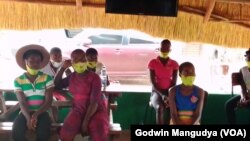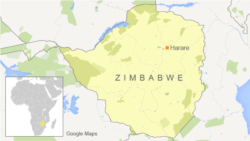The U.N. children’s agency (UNICEF) Tuesday joined the world in spotlighting girls around the world, focusing especially in Africa where officials say girls continue to experience human rights violations and hardships.
Emmanuel Compingt, the UNICEF regional gender adviser for eastern and southern Africa, said girls in Africa face increased risks of early child marriages, early pregnancy and HIV infection.
“We have the highest pregnancy rates in the world with alarming trends in Angola and Mozambique,” said Compingt, adding, “We know that every week more than 3,000 girls are newly infected by HIV in eastern and southern Africa.”
Hafsa Omer, a 19-year-old girl from Somaliland says cultural norms in the Horn of Africa nation perpetuate female genital mutilation.
“In my country, many girls are going through FGM, although there a lot of campaigns, but it still goes on because it’s part of our culture,” Omer said.
“When a girl goes through this, she never has the chance to talk about it. She cannot express her feelings and she can’t give her opinion,” added Omer.
Meanwhile in Zimbabwe, human rights groups are calling upon President Emmerson Mnangagwa to follow through on a law passed in 2020, which focuses on ensuring that girls have free access to sanitary materials.
Chipo Masibanda, a university student based in Harare says young women who are from impoverished families cannot afford sanitary wear.
“We have to be given it for free,” said Masibanda, adding, “We come from different backgrounds where we cannot get money.”
Yolanda Nyatanga, the founder of Youth Inspire, a Harare-based organization that focuses on distributing sanitary wear to girls from poor backgrounds, said the government should provide free sanitary wear because majority of Zimbabweans are unemployed.
“The cheapest package cost a dollar, so for a girl child to access sanitary pads at $1 per packet it is difficult,” said Nyatanga, adding, “Government should make it possible to access sanitary pads for free just like we access condoms for free.”









